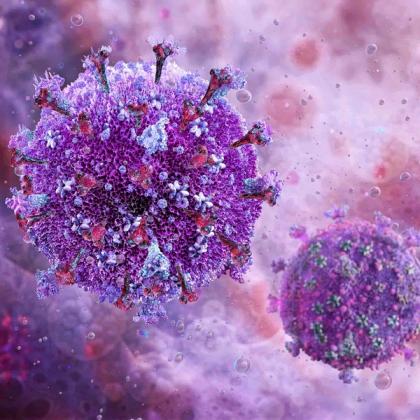This podcast episode is worth 0.43 CPD credits. Upgrade to Pro
Ep 152 – Rethinking HIV: from testing to transformation

Posted 17 Apr 2025
Dr James Waldron, Dr Grace Bottoni, Dr Mel Rosenvinge
What if one of the most misunderstood diagnoses of the past is now one of the most manageable chronic conditions? How can GPs play a pivotal role in tackling stigma, increasing testing and improving outcomes for people living with HIV?
Dr James Waldron is joined by Dr Grace Bottoni (HIV and Hepatitis C GP Champion, Lewisham) for the first episode in an insightful series that dives into the evolving landscape of HIV care. Together, they will explore a range of topics with experts in the field. In this episode, they talk with Dr Mel Rosenvinge (Consultant HIV Specialist, Lewisham and Greenwich NHS Trust) about what HIV is, how far treatments have come and the critical role of early diagnosis. From reducing stigma to understanding the life-changing impact of "U=U" (undetectable equals untransmittable). This episode sets the foundation for the series, with future parts diving into what GPs can do to improve health outcomes and address broader medical issues for people living with HIV.
Key take-home points
- HIV attacks the immune system’s CD4 (cluster of differentiation 4) cells, leading to multisystem impacts if untreated.
- Treatment advances mean HIV is now a manageable chronic condition.
- "U=U" offers reassurance: effective treatment prevents transmission.
- HIV is spread via bodily fluids (e.g., blood, semen, breast milk), but modern treatment prevents mother-to-child transmission.
- Myths persist, but casual contact such as sharing drinks or touching does not transmit HIV.
- Normalising HIV testing is crucial; GPs should routinely offer testing, especially in high-prevalence areas.
- Missed opportunities often occur: patients may present with conditions such as thrush, sexually transmitted infections or abnormal smears.
- GPs can educate patients, reduce stigma and provide holistic care for those living with HIV.
- Early diagnosis and treatment significantly improve outcomes, reducing the risk of severe illness or mortality.
- Using updated terminology like “advanced HIV” instead of “AIDS” (acquired immune deficiency syndrome) reflects current understanding.
- The UK is a leader in HIV care, with successful prevention initiatives like routine testing in emergency departments.
- Funding cuts to international programs remain a global concern, highlighting the need for continued efforts in HIV prevention and care.
Related references
- HIV Drug Interactions. https://www.hiv-druginteractions.org/checker.
- BHIVA. 2023. https://bhiva.org/rapid-guidance/bhiva-rapid-guidance-on-the-use-of-statins-for-primary-prevention-of-cardiovascular-disease/.
- NHS. 2023. https://www.nhs.uk/medicines/pre-exposure-prophylaxis-prep/about-pre-exposure-prophylaxis-prep/.
- Department of Health & Social Care. https://fingertips.phe.org.uk/profile/sexualhealth/data.
Create an account to add page annotations
Annotations allow you to add information to this page that would be handy to have on hand during a consultation. E.g. a website or number. This information will always show when you visit this page.